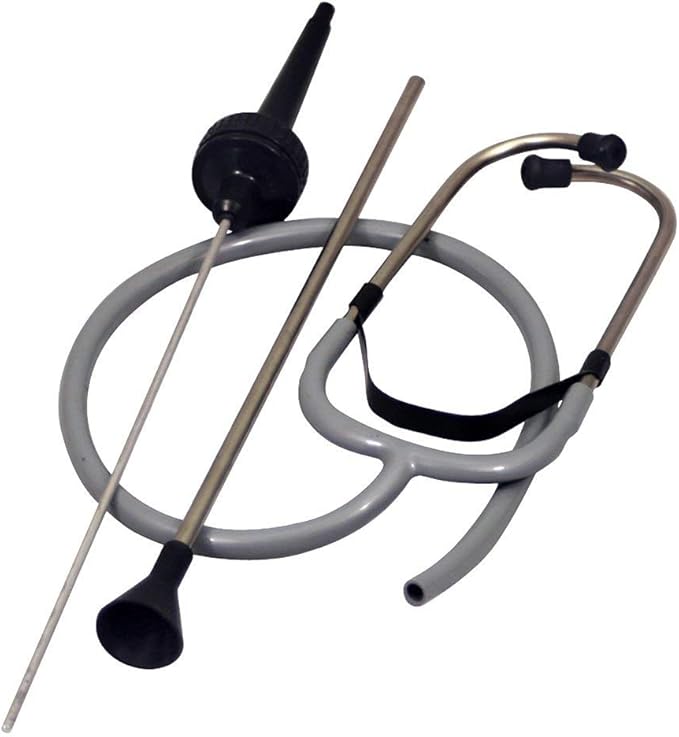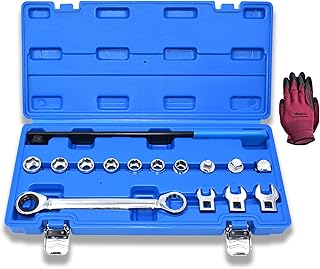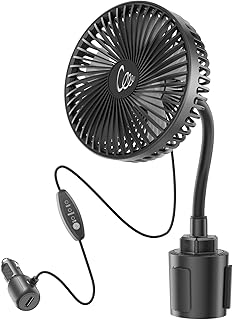Can You Drive Without an AC Compressor? A Mechanic’s Guide to What’s Safe & What’s Not
It happens on the hottest day of the year. You fire up your car’s air conditioning, and instead of a blast of cold air, you get… nothing. Or worse, you hear a horrifying grinding, screaming noise from under the hood. A quick trip to the shop confirms your fears: your AC compressor is shot, and the repair will cost a grand or more. With a bill that high, it’s natural to wonder if you can just ignore it. After all, the AC is a creature comfort, not essential for the engine to run, right? The answer is a classic mechanic’s response: “It depends.” One scenario is perfectly safe to ignore for months. The other could leave you stranded with a disabled vehicle in a matter of miles. The key is knowing the difference.
The Short Answer: It Depends ENTIRELY on the Pulley.
Yes, you can absolutely drive your car without a functioning AC compressor, IF the compressor’s pulley is still spinning freely. If the AC just isn’t getting cold but there are no loud noises, you can drive indefinitely without any risk to your engine.
However, if the AC compressor’s pulley has seized, is making a loud grinding/screeching noise, or is wobbling, you MUST NOT drive the car. A seized pulley will destroy your serpentine belt, which will instantly disable your power steering, alternator, and water pump, causing the engine to overheat and leaving you stranded.
The Heart of the System (And the Serpentine Belt’s Best Friend)
To understand the risk, you need to know what the AC compressor actually does. Its primary job, of course, is to compress refrigerant gas, which is the first step in the process that makes your air cold. But it has a second, equally important mechanical job: it serves as a critical pulley in the serpentine belt system.
The Serpentine Belt: Your Engine’s Lifeline
Think of the serpentine belt like the chain on a bicycle. It’s a single, long, ribbed belt that snakes its way around multiple pulleys, transferring the rotational power from the engine’s crankshaft to all the essential accessories. This includes:
- The Alternator (generates electricity to charge the battery)
- The Power Steering Pump (makes steering easy)
- The Water Pump (circulates coolant to prevent overheating)
- And, the AC Compressor
To get a better picture of how all these parts work together, you can explore this excellent guide on how your car works. The key takeaway is that if any one of these pulleys stops turning, the whole system comes to a screeching halt.
The Critical Question: How Is Your Compressor Failing?
When a customer comes to me with a bad compressor, my first step is to determine the failure mode. This tells me whether their car is safe to drive or if it’s a tow-in situation.
✅Scenario A: It’s Safe to Drive If… Your AC is Just Blowing Hot Air.
This is the most common failure. The internal seals of the compressor have worn out and it can no longer hold pressure, or the electromagnetic clutch that engages the compressor is broken.
What’s Happening:
In this case, the pulley on the front of the compressor is still spinning perfectly fine. When you turn the AC off, the pulley is just an idler, a freewheeling wheel that the serpentine belt glides over. When you turn the AC on, the clutch tries to engage the compressor’s internal parts. If it fails, the pulley just keeps spinning freely. There is no noise, no smoke, and no danger.
The Verdict:
You can drive this car forever. You won’t have air conditioning, and your windshield defroster (which uses the AC to remove humidity) will be less effective, but you are not doing any mechanical damage to your engine or its accessories.
❌Scenario B: STOP DRIVING If… The Compressor is Seized or Making Noise.
This is a far more serious and immediate problem. The failure isn’t internal; it’s the pulley bearing itself that has failed.
What’s Happening:
The bearing inside the pulley has disintegrated, causing the pulley to lock up (seize), wobble violently, or make a horrifying screeching/grinding noise as it’s forced to turn. The serpentine belt is now being dragged across a pulley that won’t spin. This creates immense friction and heat. In a matter of minutes, the belt will shred, melt, or snap.
The Verdict:
This is a breakdown-imminent situation. The moment that belt snaps, you will lose power steering (making the wheel incredibly hard to turn), your battery will stop charging, and most critically, your water pump will stop spinning. Within minutes, your engine will overheat, which can cause catastrophic and permanent damage like a blown head gasket or a warped cylinder head. Pull over safely and call a tow truck.
The Workaround: The AC Bypass Pulley
So what if your compressor is seized, but you don’t have the $1,500 to fix it right now? You have an option. You can ask your mechanic to install an AC bypass pulley. This is a simple bracket with a freewheeling pulley on it that is designed to bolt into the same location as the AC compressor. Your mechanic will remove the faulty compressor, install the bypass pulley, and then route a (sometimes shorter) serpentine belt around it. This allows the serpentine belt system to function perfectly, just without an AC compressor in the loop. It’s a safe and reliable way to keep your car on the road until you can afford the full repair, or to permanently delete the AC on an older vehicle.
The High Cost of Cool: Repair or Replace?
Replacing an AC compressor is an expensive, labor-intensive job that can often run from $1,000 to $2,000 or more. When faced with a bill like that, especially on an older vehicle, it’s natural to question if the repair is worth it. For some, a massive repair bill is the final push to start looking for a new vehicle. If you find yourself in this position, trying to balance repair costs against a new car payment, a tool like a what car should I buy quiz can actually be helpful to clarify your priorities and decide on the best financial path forward.
YOUR DIAGNOSTIC AND COMFORT TOOLKIT
A few simple tools can help you diagnose the problem and stay comfortable if you decide to put off the AC repair. Here’s what I keep in my own toolbox.

AUTOMOTIVE MECHANIC’S STETHOSCOPE
The best tool for diagnosing a noisy pulley. Safely touch the probe to the stationary bolt in the center of the compressor pulley. A healthy pulley will sound smooth; a bad bearing will make an obvious grinding or rumbling noise.
Check Price
SERPENTINE BELT TOOL KIT
For the advanced DIYer. This long-handled tool with various sockets gives you the leverage needed to release the tensioner and safely remove or replace a serpentine belt. Essential for a bypass pulley install.
Check Price
12V DUAL HEAD PORTABLE CAR FAN
Your new best friend if you’re driving without AC in the summer. A powerful 12V fan can make a huge difference in comfort, moving air around the cabin when your AC can’t.
Check PriceFrequently Asked Questions (FAQ)
What are the warning signs of a failing AC compressor?
The most common signs are: AC not blowing as cold as it used to, strange noises (grinding, rattling, or screeching) when the AC is turned on, and visible fluid leaks from the compressor body. The screeching or grinding noise is the most serious sign and indicates a potential seizure.
Can I just cut the serpentine belt off a seized compressor to get home?
No. While this would stop the noise, it would also disable your power steering, alternator, and water pump. You might make it a mile or two before your car overheats and dies, causing far more damage. Never run an engine without a serpentine belt unless you are a trained mechanic performing a specific diagnostic test for a few seconds.
What is the AC compressor clutch?
The AC compressor pulley is actually two parts: the outer pulley that the belt always spins, and an inner hub connected to the compressor’s guts. The clutch is a powerful electromagnet that, when you turn the AC on, pulls these two parts together, locking them. This “engages” the compressor. A common failure is for this clutch to break, which is a “safe” failure mode as the outer pulley will still spin freely.
Conclusion: A Tale of Two Failures
The question of whether you can drive without an AC compressor is a perfect example of how a single car part can have two completely different failure modes with drastically different consequences. The key is to listen to your car. If your AC silently quits, you’re looking at an uncomfortable but safe drive. If it protests with loud, violent noises, it’s giving you a clear and urgent warning. Heed that warning, pull over safely, and call for a tow. Your engine will thank you for it.
Disclaimer: This article provides general information from a professional mechanic’s perspective and does not constitute a formal diagnosis of your vehicle. Automotive systems are complex. For any mechanical issue, especially one involving noises from your engine, you should always have your vehicle inspected by a qualified, certified mechanic.
